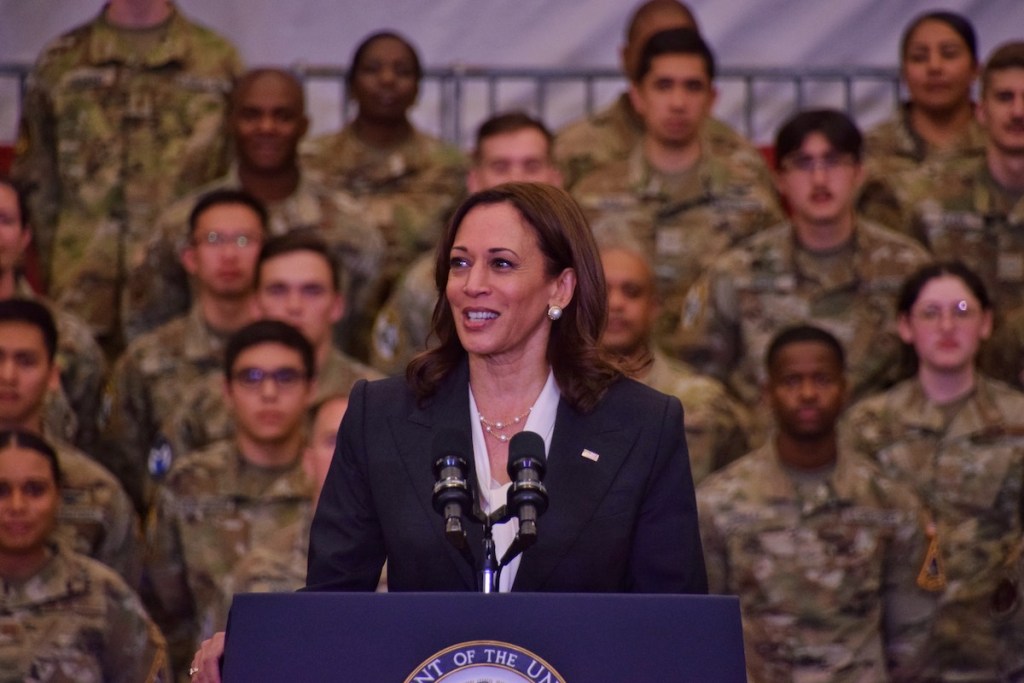Vice President Kamala Harris touched down on the Vandenberg Space Force Base on Monday to meet with Rep. Salud Carbajal, Senator Alex Padilla, and members of the Space Force — and to formally announce the United States’ commitment “not to adopt destructive direct ascent, anti-satellite missile testing,” largely in reaction to Russia’s November test that resulted in more than 1,600 identified pieces of debris orbiting the earth.
“We are the first nation to make such a commitment,” Harris said in the Vandenberg auditorium filled to the brim with camouflage embroidered with space patches. “And today, on behalf of the United States of America, I call on all nations to join us.”
Her speech lingered on the security risk posed by anti-satellite missile testing. “A piece of space debris the size of a basketball, which travels at thousands of miles per hour would destroy a satellite,” she said, pointing out that there are still 2,800 pieces of debris from China’s 2007 anti-satellite test. “Even a piece of debris as small as a grain of sand, could cause serious damage.”
If someone created a word cloud of Harris’s speech, “reckless” would be in the largest font. “These tests are part of their efforts to develop anti-satellite weapon systems,” she continued, referring to Russia and China. “These weapons are intended to deny the United States our ability to use our space capabilities by disrupting and destroying our satellites. Satellites which are critical to our national security.”
This announcement doesn’t seem to be the final frontier in U.S.’s space strategy, as Harris reiterated that the Biden administration is “focused on writing new rules of the road” in the fast-growing sector.
It makes sense for American leaders to want a head start on shaping global policy in space. After all, the global space economy is supposedly headed toward a $1 trillion market size by 2030 — up from the annual $414.75 billion notched in early 2021.
Local leaders are hoping the space economy’s estimated growth spurt will find footing in the north county. After all, the sector’s expansion is so close to home, Vandenberg is no longer known as the “Air Force Base” as of 2021.
“Vandenberg Space Force Base is one of the six candidates that is being considered for [STARCOM’s permanent base],” Rep. Carbajal told the Independent. “I believe that we are strategically poised to be selected because of our proximity to the aerospace industry, our world class universities, and just the local quality of life.”
Support the Santa Barbara Independent through a long-term or a single contribution.

